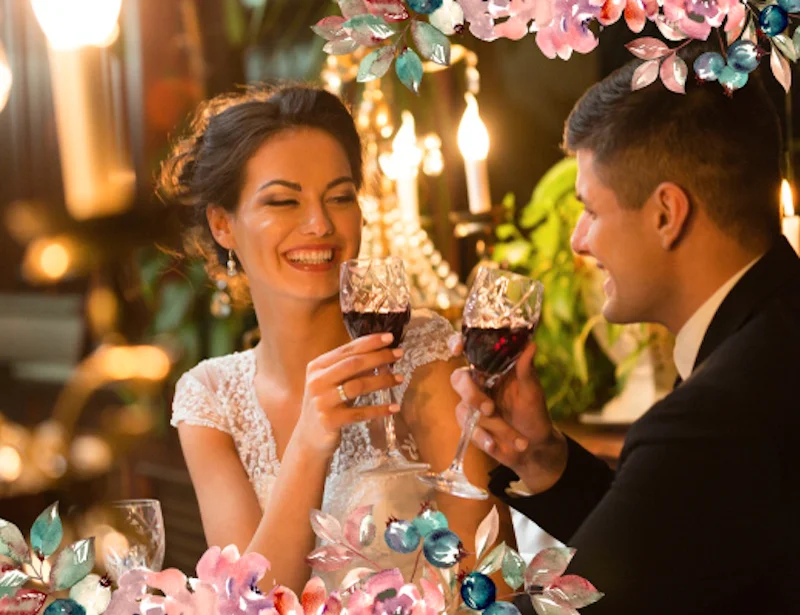Understanding Host Liquor Liability for Weddings

Weddings are often joyful celebrations filled with love, laughter, and—frequently—alcohol. Whether you’re planning an intimate backyard ceremony or a grand ballroom reception, serving alcohol comes with a unique set of risks. One important aspect that often goes unnoticed is host liquor liability. Understanding this liability is essential for couples, families, and planners looking to protect themselves and their guests.
What Is Host Liquor Liability?
Host liquor liability refers to the legal responsibility a person or organization assumes when they serve alcohol without a commercial liquor license. In the context of weddings, it typically applies when alcohol is provided at no charge to guests, such as through an open bar or when guests bring their own beverages.
Unlike licensed vendors who carry their own liquor liability insurance, private individuals hosting events can be held liable for any alcohol-related incidents, including injuries, property damage, or accidents caused by an intoxicated guest.
Why It Matters for Weddings
Weddings often involve large gatherings, celebratory drinking, and emotional highs—all of which increase the chances of something going wrong. If a guest drinks too much and causes a car accident or engages in a fight, the wedding hosts could face legal and financial consequences.
Even if the event is held at a rented venue or managed by a professional planner, the liability may still fall on the individuals who arranged the celebration. That’s why it’s critical to understand host liquor liability for weddings and take appropriate precautions.
Scenarios Where Host Liquor Liability May Apply
To put this into perspective, here are a few situations where host liquor liability could come into play:
A guest leaves your wedding reception visibly intoxicated and is involved in a DUI accident.
Someone under the legal drinking age is served alcohol and becomes injured or causes harm.
An intoxicated guest damages property at the venue or injures another guest during a conflict.
In these cases, the injured party—or their insurance provider—may pursue legal action against the hosts for negligence, even if the alcohol was served informally or brought by guests themselves.
How to Protect Yourself as a Wedding Host
1. Purchase Event Liability Insurance
One of the best ways to mitigate risk is to obtain event liability insurance that includes host liquor coverage. Many insurance companies offer one-day or short-term policies specifically for weddings and private events. This type of insurance can cover:
Third-party bodily injury
Property damage
Legal fees in case of lawsuits
Medical payments
Ensure that your policy includes host liquor liability coverage, as not all general event insurance automatically includes it.
2. Use Professional Bartenders or Caterers
Hiring a licensed bartender or catering company shifts much of the responsibility to professionals trained in alcohol service. These vendors usually carry their own liquor liability insurance and understand when and how to refuse service to intoxicated or underage guests.
While this won’t eliminate all risks, it significantly reduces the chances of over-serving and the associated liabilities.
3. Set Clear Alcohol Policies
Make alcohol consumption part of your planning conversation. Consider implementing these safety measures:
Limit the hours during which alcohol is served.
Offer plenty of food and non-alcoholic beverage options.
Provide transportation options or partner with a rideshare service.
Ensure someone remains sober and responsible throughout the event.
These actions promote responsible drinking and help protect you and your guests.
4. Check Venue and Vendor Requirements
Some venues require hosts to carry their own event insurance policies with liquor liability coverage. In many cases, they’ll request to be added as an “additional insured” on the policy. Always read contracts carefully and confirm what coverage is required or already in place.
Who Should Consider Host Liquor Liability?
While couples are typically the primary hosts, others who may need to consider coverage include:
Parents or family members hosting the event
Wedding planners or coordinators organizing alcohol service
Friends hosting a bachelor or bachelorette party at home
Anyone providing or facilitating alcohol at a private event without a liquor license can benefit from understanding the associated liabilities.
Common Misconceptions About Wedding Alcohol Liability
“We’re not selling alcohol, so we’re safe.”
Even if you’re not charging for drinks, you can still be held liable under host liquor laws. The key factor is whether alcohol was provided or permitted by the host—not whether it was sold.
“The venue has insurance, so we don’t need it.”
Venue coverage usually protects the property owner, not necessarily the wedding party or their guests. You may still be held responsible if an incident is linked to your event.
“We’ll just have a BYOB event.”
Allowing guests to bring their own alcohol does not eliminate your risk. If someone drinks too much and causes harm, you could still be named in a lawsuit.
Final Thoughts
Understanding host liquor liability for weddings isn’t about spoiling the fun—it’s about planning responsibly and protecting the celebration you’ve worked so hard to create. With the right precautions, including the proper insurance and responsible alcohol service, you can enjoy your special day with peace of mind.
Every wedding is unique, and so are the risks. Take the time to assess your needs, speak with your vendors, and consult an insurance professional. Because while love may be blind, liability isn’t.
